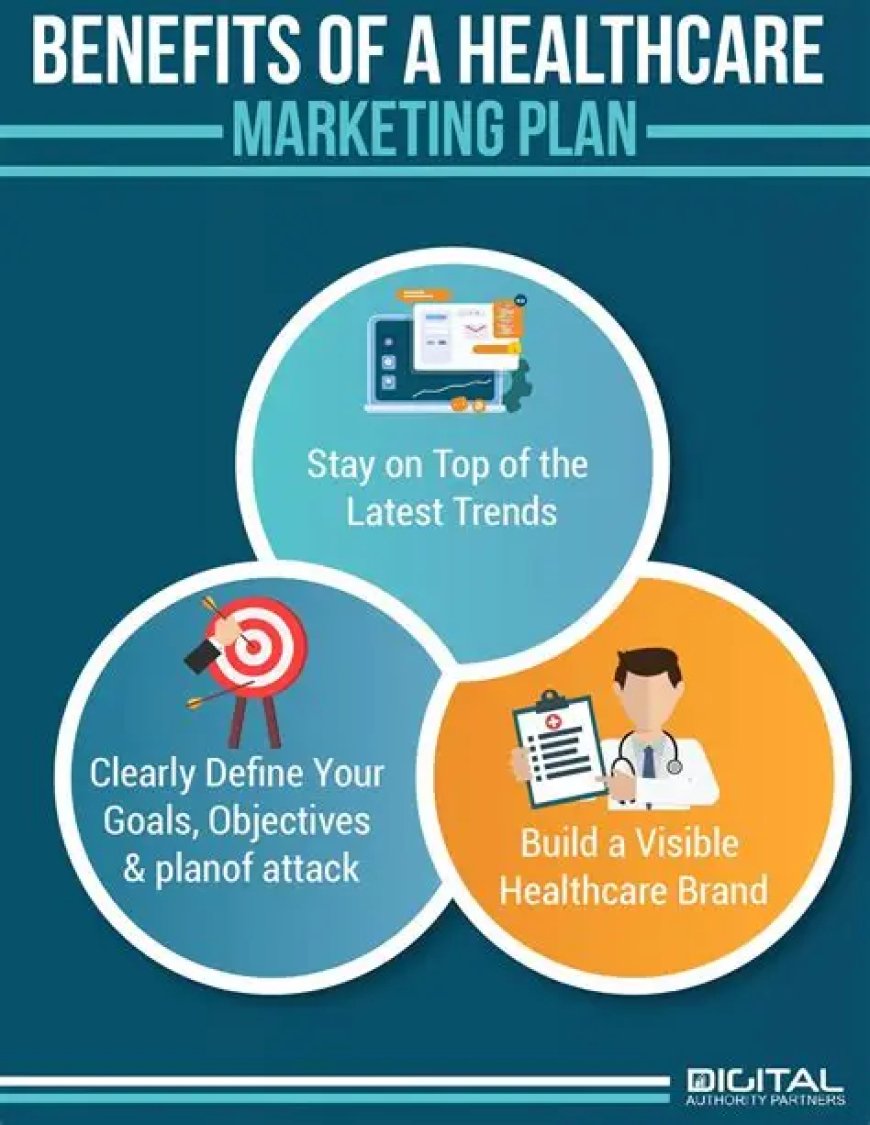How Content Marketing Transforms Healthcare Brands

Introduction: Why Healthcare Needs a Human Voice Now More Than Ever
Healthcare isn’t just about treatments, appointments, and prescriptions anymore. It’s about connection, trust, and communication. In today’s digital-first world, patients aren't just looking for answers—they’re seeking reassurance, clarity, and compassion. That’s where content marketing for healthcare brands steps in.
Imagine a patient searching online for signs of diabetes, the best approach to mental health, or understanding post-surgery care. What they find can either confuse or comfort them. When a healthcare brand becomes their source of trustworthy information, it instantly builds credibility—and loyalty.
But here's the truth: most healthcare brands are still missing out. If your healthcare practice or organization isn’t harnessing the power of content marketing, you’re not just behind the curve—you’re invisible.
This article will guide you through how content marketing for healthcare brands can turn your expertise into influence, your knowledge into trust, and your visitors into lifelong patients.

The Rise of Content Marketing in Healthcare
Content marketing isn’t a buzzword—it’s a necessity. According to recent studies, over 80% of internet users search for health-related topics online. Patients are no longer passive—they research, compare, and decide long before they walk into a clinic.
What is Content Marketing for Healthcare Brands?
Content marketing for healthcare brands involves creating valuable, relevant, and informative content to:
-
Educate patients
-
Build trust and authority
-
Improve search engine rankings
-
Convert readers into patients
-
Retain patient loyalty
And unlike ads, content marketing doesn’t shout—it speaks. It informs. It builds a relationship.
Benefits of Content Marketing for Healthcare Brands
1. Builds Authority and Trust
When patients find consistent, accurate, and empathetic content on your website or social platforms, they begin to see your brand as an expert.
Example: A well-written blog on "How to manage anxiety naturally" helps someone in distress. That experience sticks.
2. Improves SEO and Online Visibility
Quality content with the right keywords boosts your search engine rankings. That means more people see your brand first when looking for medical advice.
3. Educates and Empowers Patients
Clear, easy-to-understand content helps patients make informed decisions. When they understand their health better, they engage more with your services.
4. Reduces Misinformation
The internet is full of misleading health advice. By producing accurate content, you become a trusted counterpoint to online myths.
5. Cost-Effective Long-Term Strategy
Unlike paid ads, content keeps working for you. A blog post written today can bring traffic for years with the right SEO.
Essential Content Types for Healthcare Brands
Blog Articles
Informative articles on conditions, symptoms, treatments, or lifestyle changes are a cornerstone of content marketing. These improve SEO and patient education.
Patient Stories
Real stories from real people create emotional connection and trust. They show empathy and authenticity that brochures can't.
Infographics
Quick, visually engaging summaries help explain complex topics like treatment cycles, anatomy, or medical procedures.
Video Content
Doctor Q&As, how-to videos, or explainer animations humanize your brand while delivering value-packed insights.
Email Newsletters
Keep your audience engaged with regular updates, tips, and personal insights from doctors or wellness experts.
Webinars and Live Q&As
Live interactions build immediate trust and offer interactive education for your community.
How to Build a Winning Content Strategy for Healthcare
Step 1: Understand Your Audience
Are they parents, seniors, young adults, or chronic illness patients? Understanding their pain points, language, and questions is key.
Step 2: Choose Relevant Topics
Think like your patient. What would you Google? "What causes back pain?" or "Best foods for diabetics"—these are perfect blog topics.
Step 3: Create with Empathy and Clarity
Avoid medical jargon. Speak like a human. Patients want to understand, not be impressed by Latin terms.
Step 4: Stay Consistent
Content marketing is a long game. Regular posting keeps your brand top-of-mind.
Step 5: Use SEO Wisely
Naturally include keywords like content marketing for healthcare brands without stuffing. Use related terms and long-tail keywords.
Step 6: Promote Across Channels
Share your content on social media, email, and other digital platforms to maximize reach.
Common Mistakes to Avoid
-
Overusing technical language
-
Being too promotional
-
Ignoring patient concerns
-
Not updating old content
-
Writing without a strategy or SEO in mind
Myths vs Facts: Content Marketing in Healthcare
| Myths | Facts |
|---|---|
| Content marketing doesn’t work in healthcare. | It’s one of the most effective tools for building trust and visibility. |
| It’s too risky because of regulations. | With proper compliance, content marketing is both safe and impactful. |
| Only big hospitals can afford it. | Even small clinics can thrive with a smart content strategy. |
| Patients don’t read long content. | If it’s helpful and clear, they absolutely do—especially health content. |
| One blog post is enough. | Consistency is key. One post won't build authority. |
FAQs: Content Marketing for Healthcare Brands
Q1: Is content marketing really effective in healthcare?
Yes. It’s one of the most trusted ways to build brand awareness, educate patients, and grow loyalty without heavy ad spend.
Q2: What platforms should healthcare brands focus on?
Start with your website and blog. Then expand to YouTube, Instagram, and email newsletters for maximum engagement.
Q3: Is it okay to mention treatments and conditions?
Absolutely—but ensure you’re compliant with health regulations and avoid giving direct medical advice.
Q4: How do I measure ROI in content marketing?
Track metrics like website traffic, bounce rate, time spent on page, patient inquiries, and appointment bookings.
Q5: Do I need a medical writer for healthcare content?
Ideally, yes. But you can also work with experienced content creators who collaborate with your in-house experts.
Real-World Example (Without Brand Names)
Let’s say a dental clinic starts a blog about gum care. They publish weekly tips on oral hygiene, myths about root canals, and food habits that affect teeth. Over 6 months, their website traffic triples, and patients frequently mention the blog during appointments. That’s content marketing for healthcare brands in action—quietly powerful and long-lasting.
The Emotional Side of Healthcare Content
Healthcare is personal. Behind every search query is a worried parent, an anxious teenager, or a confused patient. Content that addresses their fears, explains without judgment, and offers guidance—can be more healing than medicine itself.
Your brand’s content shouldn’t just inform—it should comfort, connect, and care.

Conclusion: Start Building Trust Today
If you’re in the healthcare space and still depending only on traditional ads or referrals, you're missing a golden opportunity. Content marketing for healthcare brands is not about selling services—it’s about earning trust, one piece of content at a time.
Start small. Write a blog post. Share a patient success story. Post a doctor’s tip of the week. Every little effort compounds. In a world where patients are drowning in information, be the voice they can trust.
If you’re serious about building long-term credibility and growing your patient base authentically, now’s the time to invest in content marketing for healthcare brands. Start today—because the patients who are searching for answers, are also searching for you.
What's Your Reaction?

































































